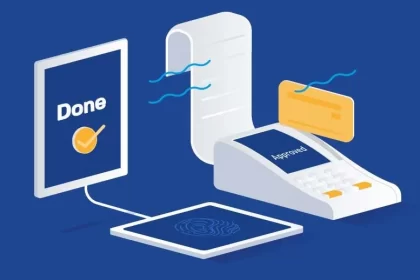CEOs operate under intense pressure, balancing strategic planning, investor relations, team leadership, and decision-making. Yet, many still spend hours on tasks that could easily be handled by someone else, email sorting, meeting coordination, calendar management, and data entry.
These necessary but repetitive responsibilities can quietly drain time and mental energy, reducing a CEO’s capacity to lead with focus and clarity.
Delegating administrative work to reliable remote support transforms the way executives operate. It creates space for critical thinking, innovation, and growth, without compromising daily efficiency.
Trusted professionals provide essential support remotely, helping business leaders streamline their day-to-day operations, stay organized, and maintain focus on high-level goals. Virtual Administrative Assistants empower CEOs to work more efficiently, reduce stress, and focus on what really matters: growing their business.
What is a Virtual Administrative Assistant?
A Virtual Administrative Assistant (VAA) is a remote professional who offers administrative support to businesses, entrepreneurs, and executives.
Unlike traditional in-office assistants, VAAs work from different locations often in different time zones, using online tools to communicate, manage tasks, and stay productive. Their responsibilities typically include:
- Managing emails and calendars
- Scheduling meetings and appointments
- Preparing reports and presentations
- Handling customer service inquiries
- Data entry and database management
- Travel planning and expense tracking
By outsourcing these tasks, CEOs free up significant time, allowing them to dedicate more attention to strategic decision-making.
Why CEOs are turning to virtual business support
The rise of remote work and digital collaboration tools has transformed how businesses operate. Many executives are now realizing that high-quality support doesn’t require a physical presence. Here’s why more CEOs are embracing this support model:
1. Increased efficiency
Administrative tasks can eat up hours each week. VAAs are trained to handle these responsibilities quickly and accurately, ensuring that operations continue to run smoothly without the CEO’s direct involvement.
2. Cost savings
Hiring a full-time, in-house assistant involves salary, benefits, equipment, and office space. Virtual Administrative Assistants typically work on a contract basis, which allows companies to reduce overhead and only pay for the hours they need.
3. Scalability and flexibility
As companies grow, so do their needs. VAAs offer flexibility that traditional employees cannot. Whether it’s increasing work hours during busy seasons or bringing in extra help for a new project, CEOs can easily scale their support.
4. Access to specialized skills
Many VAAs have experience in specific industries or software, giving CEOs access to a broad talent pool. Need someone who’s great at CRM management, social media, or invoicing? There’s a VAA for that.
Time: the most valuable resource for CEOs
A common challenge CEOs face is managing their time effectively. CEOs work an average of 62.5 hours per week, with only 11% of that time spent on professional development and strategy. By delegating routine tasks to a remote executive assistant, CEOs can reallocate hours toward:
- Long-term vision and strategy
- Relationship building with investors or partners
- Exploring new markets and growth opportunities
- Mentoring leadership teams
- Personal wellness and work-life balance
The return on this time investment is significant. With fewer distractions and more mental bandwidth, CEOs are better equipped to lead with clarity and purpose.
Common tasks ceos delegate
Let’s take a closer look at the practical ways trusted professionals support top-level executives. Managing calendars, organizing emails, handling client communications, and preparing reports are just a few tasks that free up valuable time for CEOs to focus on strategic decisions, business development, and leading their teams. By offloading routine administrative responsibilities, CEOs can work smarter, not harder.
Email and inbox management
A cluttered inbox can become a source of stress and inefficiency. VAAs filter, prioritize, and respond to emails, ensuring the CEO only sees what truly matters.
Calendar and scheduling
Coordinating meetings, avoiding scheduling conflicts, and optimizing daily agendas, these are all crucial to maintaining productivity. VAAs handle it all seamlessly.
Travel arrangements
Whether it’s booking flights, arranging hotel stays, or preparing itineraries, a virtual assistant can manage every detail of a business trip.
Document creation
Need a PowerPoint deck for a stakeholder presentation? Or a well-organized report? VAAs can create, format, and polish professional documents quickly.
CRM and database updates
CEOs rely on accurate data to make decisions. VAAs ensure client records, pipelines, and other databases are consistently up to date.
Boosting focus and reducing burnout
Leadership roles come with pressure. Constant decision-making, team management, and problem-solving can take a toll on mental health. When CEOs try to do everything themselves, burnout is inevitable.
By removing repetitive tasks from their plate, trusted professionals help create space for clarity and creativity. CEOs can then focus on strategic thinking, innovation, and leadership, without feeling overwhelmed by daily demands.
Support professionals and business growth
Every growth-oriented company must scale smartly. CEOs need to spend their time on actions that directly move the business forward. This could mean launching new products, expanding into new markets, or refining their value proposition.
Having reliable virtual support means that key tasks continue without delay or disruption, even while the CEO is focused elsewhere. It also allows startups and small businesses to compete at a higher level, without the need to build out a large team from the start.
Choosing the right support solution
Not all support solutions are created equal. Here are some key tips for CEOs looking to make the right hire:
- Define your needs: Identify the tasks you want to delegate and the skill sets required.
- Ask for references: A reputable support provider should have experience and testimonials from past clients.
- Start small: Begin with a trial project or a few weekly hours to test the relationship.
- Set clear expectations: Communication is key. Use tools like Slack, Asana, or Trello to keep workflows organized.
- Focus on compatibility: A strong working relationship requires mutual trust and alignment in work styles.
The bottom line
The modern CEO wears many hats but they don’t have to wear all of them at once. By hiring a Virtual Administrative Assistant, business leaders can streamline operations, protect their energy, and focus on growing their companies with confidence.
In a world where agility and focus define success, smart delegation through virtual business support is not just helpful, it’s essential.










